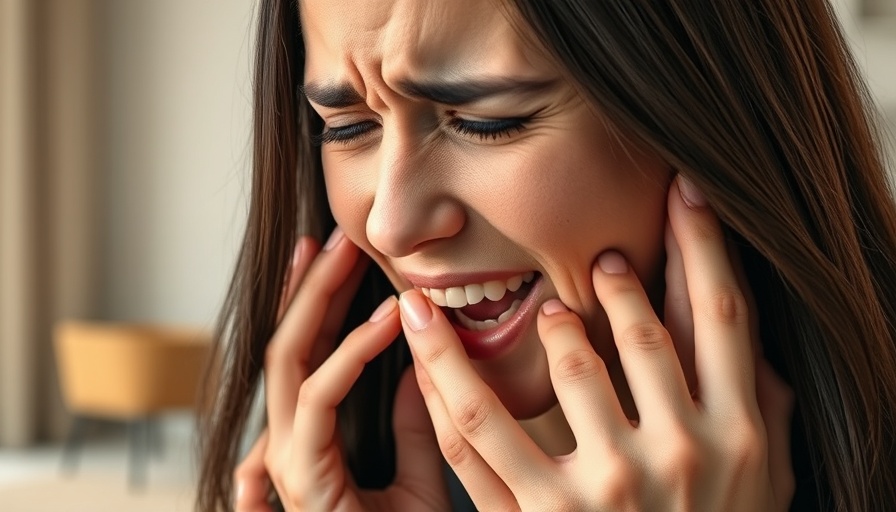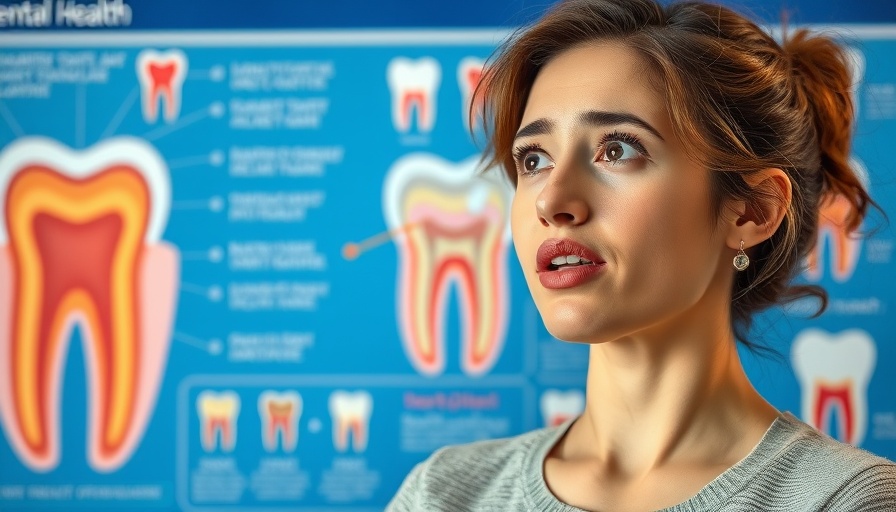
Understanding the Rise of Teeth Grinding
In recent times, a concerning trend has emerged: more individuals are finding themselves grinding their teeth—a behavior that has increased by a staggering 70% according to dental professionals. Stress is often cited as the primary culprit behind this surge. The pandemic has left many of us navigating heightened levels of anxiety, making stress management more crucial than ever. But what exactly should we know about this phenomenon, and how can we protect our dental health amidst it?
In 'Why is Teeth Grinding Up 70%?', the discussion dives into the alarming rise in teeth grinding, exploring key insights that sparked deeper analysis on our end.
Recognizing the Signs of Teeth Grinding
Most people who grind their teeth are unaware of their habit since much of it occurs during sleep. While daily stress can lead to noticeable signs like jaw pain or headaches, many might overlook them. It's important to be attentive to symptoms like discomfort in the jaw, neck pain, or even ear discomfort upon waking. Our dentists may be the first to notice clues, such as worn-down teeth or noticeable chips.
The Impact of Stress on Dental Health
The connection between stress and teeth grinding—known as bruxism—highlights a significant issue in dental health. Stress-induced grinding often leads to long-term effects on our teeth if left unaddressed. This can cause cracked teeth that require urgent and potentially expensive dental interventions. Understanding stress management techniques such as meditation, regular exercise, and therapy can be valuable tools in reducing grinding habits.
Exploring Other Contributing Factors
Teeth grinding isn't solely attributed to stress. Other factors play a significant role, including sleep disorders like sleep apnea, which can trigger jaw clenching during the night. Misalignment of teeth can also push your jaw to find a more comfortable position, exacerbating grinding habits. Lifestyle choices, such as tobacco and alcohol use, further increase the likelihood of bruxism. Overall, addressing these underlying issues can substantially improve dental health outcomes.
Protective Measures: The Role of Night Guards
While the cause of teeth grinding should be addressed, protective measures are essential. Night guards, custom-fitted by dentists, offer a vital layer of protection against the damage caused by grinding during sleep. Although they do not eliminate the grinding itself, they act as a buffer, safeguarding teeth from excessive wear and tear. For those seeking cost-effective solutions, semi-custom options provide a useful alternative, but professional fitting remains the preferred method.
Seeking Professional Guidance for Comprehensive Care
If you suspect that you're grinding your teeth, consulting a dentist is essential. They can examine your teeth for signs of wear and recommend appropriate treatment. Simple inquiries, such as a sleep study to assess potential apnea, may provide a pathway to resolving these issues effectively. If misalignment is a concern, asking for a referral to an orthodontist can be a step toward a healthier bite and significantly reduced grinding.
Taking Action Against Teeth Grinding
Ultimately, raising awareness about teeth grinding can lead to proactive measures for dental health. Not only should we manage stress, but we must also recognize the importance of dental hygiene and health. If you or a loved one is experiencing these challenges, remember that seeking help and adopting preventive methods can save significant health costs in the long run.
To help combat the rising trend of teeth grinding, take the time to speak with your dental care provider about your experiences. Invest in a night guard that fits well, explore stress management techniques, and prioritize your oral hygiene routine. By doing so, you contribute positively to your overall dental health, safeguarding it against the perils of clenching and grinding.
Remember that dental health is an integral part of overall wellness, and taking proactive steps today can ensure a brighter, healthier smile tomorrow.
 Add Row
Add Row  Add
Add 




Write A Comment